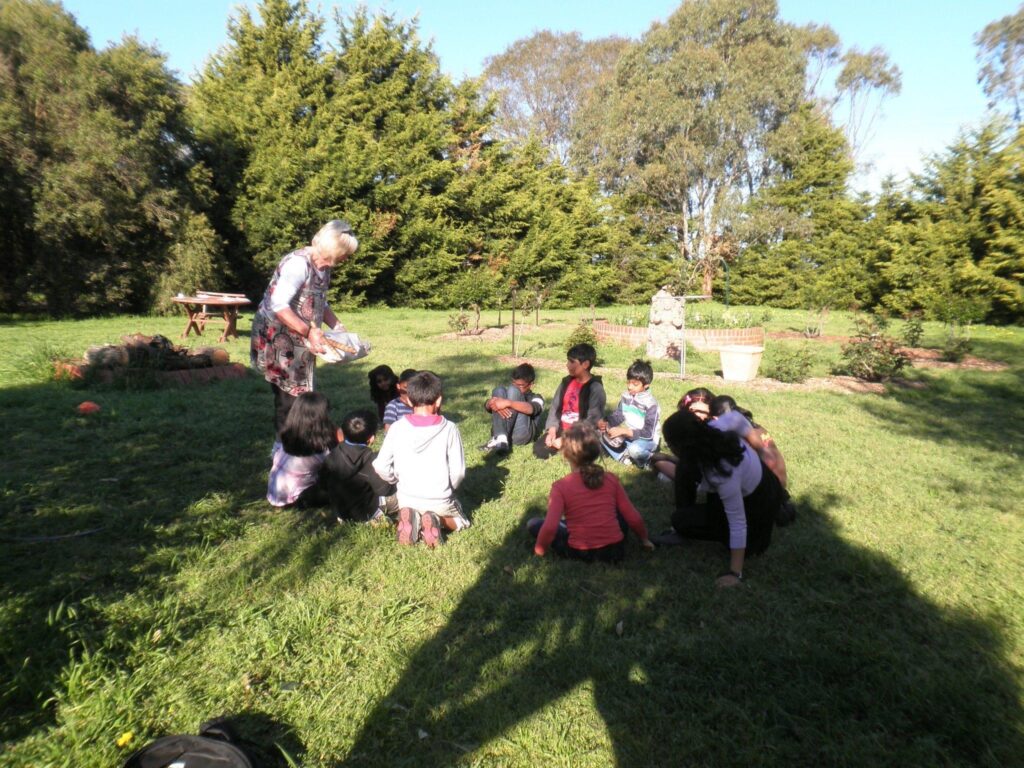SCHOOL VISION
SCHOOL MISSION
AAAS SCHOOL PROGRAMME
PROGRAMME STRUCTURE
OVERVIEW OF CURRICULUM DESIGN
WORKSHOPS AND ACTIVITIES
Students regularly participate in cultural and religious festivities and learn about their spiritual and cultural significance. Children are encouraged to both enjoy and appreciate the purpose, deeper meaning and significance of such festivities. Students are guided in undertaking social projects and gain opportunities to learn about the interconnections between the environment, mankind and undertake selfless service (also known as ‘seva’). At AAAS, this means an emphasis on the importance of conserving and respecting Mother Earth, respectful co-existence with nature and fellow humans, growing organic food, sustainable living and more.
ASSESSMENT
At the completion of each module within a level of study, as well as successful completion of a given level of study (i.e. level 1, 2, 3 etc), the students will receive certificates of completion and proficiency, and of participation where appropriate.
1) Assessments are undertaken based on a modular format
a) Modules I and II – Sanskrit linguistics and scriptural studies
1. In-class regular quizzes
2. Term-end written tests
3. Term projects – individual and team
b) Modules III and IV – Vedic chanting and devotional music
1. Oral recitation/singing tests.
2. Weekly quizzes
3. Contests
2) Assessment difficulty will also vary based on cohort groups.
a) Pre-Junior: participation and activity-based assessments.
b) Junior to senior: skill-based assessments (oral, written and project work).
CERTIFICATION
All students who pass the assessment of a given module, or a level of study, receive a certificate of completion. Where appropriate, a certificate of participation is given. Certificates will specify the type of module and level of study.
STUDENT COHORTS BY AGE GROUP
II – Junior 8-11 years
III – Senior 12-15 years
IV – Intern 16-17 years
STUDENT STUDY LEVELS
Level 2 – Elementary
Level 3 – Pre-intermediate
Level 4 – Intermediate
Level 5 – Pre-advanced
Level 6 – Advanced
FORMAL CLASSES
EVENTS, ACTIVITIES & WORKSHOPS
AAAS SCHOOL GOVERNANCE
The School Governance Board (SGB) is the governing body that is responsible for the strategic direction, and oversight of the school policy on operations, governance, financial management and performance. This includes:
1. Reviewing the performance of the students
2. Reviewing financial management of the school including approval of school fees; and any expenses (over $500)
3. Approving an annual school budget
4. Liaising with external stakeholders, parent and student communities, and create interest in the school within and across the broader community.
5. Approving staff and curriculum changes as appropriate
6. Formulating appropriate governance policies and codes of conduct
CURRENT BOARD MEMBERS
Dr. Nava Subramaniam (Board Chairperson)
Mrs. Jayshree Raghavan (MAC – Director Representative)
Mrs. Sindhu Anilkumar (MAC – National Coordinator)
Mrs. Sue Byrne (External Representative)
Mrs. Geeta Devi (External Representative)
Mrs. Sreela Maloor (Parent Representative)
Mrs. Raja Muneeswari (Kavitha) Manikanndan (School Principal)
Board meetings will normally be held three times a year.
THE SCHOOL PRINCIPAL
Is responsible for the school’s day-to-day operations including oversight of curriculum development, teaching staff, keeping student records in good order, managing social media and the day-to-day financial management of the school budget. The principal will also conduct an annual parent-teacher meeting. Will report to the School Board and directly communicate with the Chair of the board on all critical financial and operational matters and any imminent issues, particularly that affecting School curriculum changes, budget matters, parent student issues, and student-staff wellbeing.
TEACHERS
Are responsible for developing class content and delivery, as well as design of assessment and record keeping of student performance in their individual classes. All teachers including guest teachers must hold a working with children permit, particularly if taking face-to-face classes.
TEACHING STAFF
Swami Atmananda Puri
Is a monastic disciple of Sri Mata Amritanandamayi Devi. He first met Amma in 1989 and has been living at Amma’s ashram in Kerala, India since 1993. He has been conducting meditation retreats and spiritual discourses in Singapore,
Malaysia, Europe, Mauritius, Australia and New Zealand to guide individuals toward finding greater peace in their everyday lives. He is also a global Teacher of the IAM® Technique.
School Principal: Mrs. Raja Muneeswari Manikanndan
Currently a school teacher working in a Victorian school with a tertiary qualification in education. Has experience developing school curriculum and working with school children in Victoria and the coordinator of Balakendra classes since mid-2020.
AASC is committed to providing all students with a learning environment that is inclusive, safe and dedicated to meeting their learning needs. The School’s Code of Conduct sets out acceptable behaviours for students, teachers and parents so as to foster sharing of knowledge, understanding of traditional culture and spiritual practices in an environment of mutual respect, care, and courtesy.
The School’s COC is premised on the following principles:
1.All children have the right to be treated with respect and have their diversity valued
2. All children are encouraged to be polite, courteous and well mannered
3. All children have the right to be safe
4. All children have the right to work and play in a secure environment without interference, intimidation, harassment, bullying or disruption
5. All children have the right to be supported in their learning
The students are expected to:
1. Show mutual respect to peers, teachers, parents and property
2. Work to the best of their ability
3. Support each other and honor teamwork, integrity and discipline
4. Respect the values, beliefs and feelings of their peers, and be polite at all times.
5. To attend classes and workshops on a regular and timely basis.
The Teachers and Parents are committed to:
1. Engendering a positive and a broad understanding of ancient spiritual knowledge and cultures.
2. Encourage sharing, tolerance and compassion amongst all children.
3. Develop respect, acknowledge differences and encourage self-reflection
4. Promote an environment free from all harassment including: racism; sex-based; cultural and any discrimination related to disabilities and impairment.
5. Support responsible behaviors and student learning

About Amma
Sri Mata Amritanandamayi Devi—or Amma (Mother), as she is known—is loved throughout the world as an extraordinary humanitarian and spiritual leader who is transforming the lives of millions of people through her spiritual teachings and the living example of her life.
Get In Touch
Copyright © 2025. All rights reserved.




